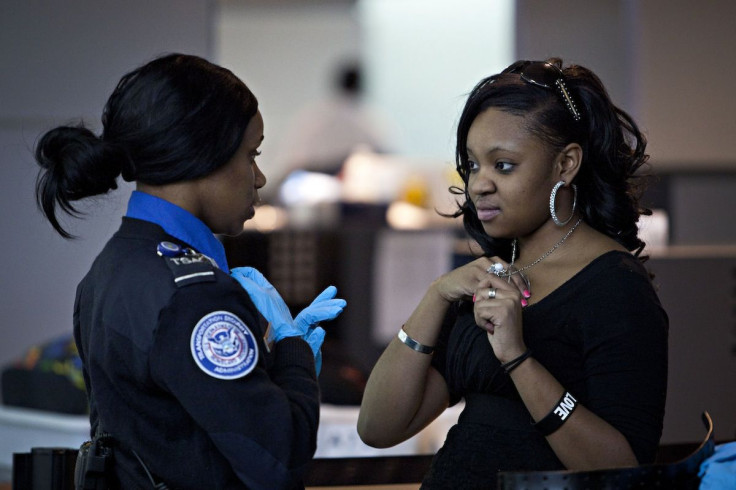TSA Behavioral Detection Officers ‘Not Effective,’ Waste Of $200M Annually: Report

The U.S. Government Accountability Office called into question the effectiveness of the Transportation Security Administration’s behavioral detection schemes in a report released Wednesday, saying the program, which has cost $900 million since 2007, offered results that were “no better than chance.”
The TSA’s Screening of Passengers by Observation Techniques program, or SPOT, involves some 3,000 full-time agents identifying “suspicious” travelers and talking to them to determine whether or not they pose a threat. Officers often question travelers waiting in checkpoint lines or conduct what the public has dubbed “chatdowns,” a practice that has drawn the ire of civil liberties groups, who accuse the TSA of racial profiling.
GAO looked at more than 400 academic and government studies conducted over the past 60 years related to detecting deception and came to question whether TSA’s method of human observation, unaided by technology, was effective. The agency said its peer-reviewed study did not support the belief that nonverbal behavioral indicators could be used to reliably identify deception, and added that variation in referral rates raised questions about the use of such indicators.
A review of the program’s referrals and resulting arrests, none of which amounted to any terrorism charges, showed that the TSA’s ability to identify deceptive behavior based on behavioral cues or indicators was the same as or slightly better than chance at 54 percent. The GAO’s review confirmed findings in a similar report from the Department of Homeland Security last year, which found the program was not objective, nor could the TSA properly assess its effectiveness.
Rep. Bennie Thompson, D-Miss., said the GAO review reiterated that the behavioral profiling program was “fundamentally flawed, cannot be proven effective and should no longer be funded with taxpayer dollars.” Thompson is the leading Democrat on the House Homeland Security Committee. His Republican counterpart, Rep. Mike McCaul of Texas, agreed, saying that, though he saw value in utilizing behavior detection and analysis in the aviation environment, “we can only support programs that are proven effective.”
TSA Administrator John S. Pistole reacted to the report at a House subcommittee hearing Thursday, saying behavior detection provided “a crucial layer of security” and had resulted in 2,116 screening referrals to law enforcement last year, 30 boarding denials and 183 arrests. He promised to improve behavioral detection analysis, but said it should continue to be funded at current levels.
“While TSA appreciates GAO’s partnership in improving the BDA program, we are concerned that its most recent report relies heavily on academic literature regarding the detection of individuals who are lying,” Pistole said. “It is important to note that TSA’s behavior detection approach does not attempt to specifically identify persons engaging in lying; rather, it is designed to identify individuals who may be deemed high-risk based on objective behavioral indicators.”
Pistole reiterated that the agency had zero tolerance for unlawful profiling. “Not only is racial profiling generally prohibited by federal law and under department and agency policy, but it is also an ineffective security tactic,” he said. “TSA has zero tolerance for this kind of behavior and has taken several steps to reinforce the agency’s nondiscrimination and anti-profiling policies with our workforce.”
© Copyright IBTimes 2024. All rights reserved.




















